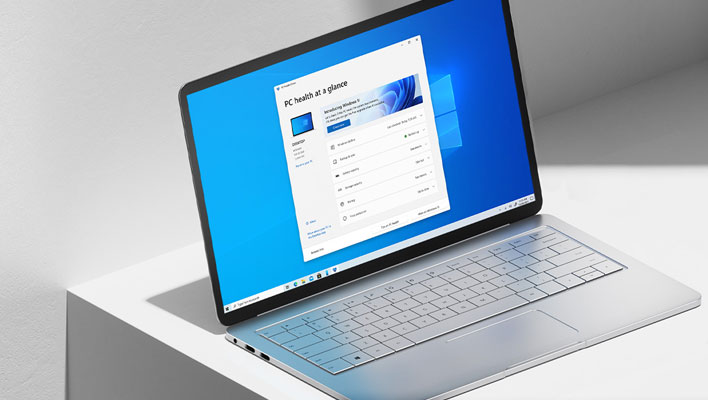Windows 11 Updates Pushed To Unsupported PCs Despite Microsoft's Dire Warning

Attempting to upgrade a PC to Windows 11 when the system doesn't meet the minimum system requirements for any reasons elicits an ominous warning message foreboding potential doom and destruction. That's only a slight exaggeration. Part of the warning message states unsupported PCs are not entitled to receive updates. However, at least in the early going, users report seeing updates pushed out to their unsupported PCs anyway.
There is a fair amount of confusion surrounding the release of Windows 11. A big reason why is that the system requirements call for PCs to support and enable Secure Boot and Trusted Platform Module (TPM) 2.0. The latter is a feature baked into most modern CPUs, but typically hadn't been enabled by default on consumer motherboards.
This necessitated going into the BIOS, finding the setting (which can by one of several different names), and flipping the toggle. Or updating the BIOS altogether, if there's a newer version that enables TPM 2.0 by default. Both paths can be met with trepidation by inexperienced and/or less savvy PC users.
Microsoft also decided to not support most CPUs older than Intel's 8th Gen Core and AMD's second-generation Ryzen chips. There are a handful of exceptions, as later in the game, Microsoft added a few 7th Gen Core processors to the mix. These are mostly Xeon CPUs, save for the Core i7-7820HQ, which just so happens to power its own Surface Studio 2 all-in-one desktop. Convenient, eh?
Anyway, here's the message users receive when forcing Windows 11 onto unsupported hardware (and which Microsoft outlines in bold text in a support document)...
"This PC doesn't meet the minimum system requirements for running Windows 11 - these requirements help ensure a more reliable and higher quality experience. Installing Windows 11 on this PC is not recommended and may result in compatibility issues. If you proceed with installing Windows 11, your PC will no longer be supported and won't be entitled to receive updates. Damages to your PC due to lack of compatibility aren't covered under the manufacturer warranty."
It's difficult to envision a scenario where installing Windows 11 on a system with, say, an unsupported Core i7-7700K processor would lead to actual damage to the PC. But hey, Microsoft is covering its backside, just in case.
The more pressing matter is the prospect that these PCs could end up with unpatched vulnerabilities. I've written about this before and surmised that Microsoft wouldn't (and definitely shouldn't) go that route, because we all have a collective interest in everyone's PCs being protected from the latest threats, as opposed to be involuntarily recruited as part of a botnet.
It appears Microsoft agrees. There's a thread on Reddit where multiple users, in response to a question, say they are receiving updates on Windows 11 in the early going. This is notable, because the first Patch Tuesday update for Windows 11 went out earlier this week.
"So far they are installing for me. It might change in the future, but right now you should be good to go," one of the users wrote. Another one stated, "Same, Ive getting cumulative updates so I guess they forgot to change that. And yet another user wrote, "I still get updates without tools or any registry [tweaks]. (CPU unsupported)."
This is good news, and as it should be. Let users decide for themselves if they want to risk potential instability or compatibility issues, and don't deny them security updates, because that doesn't benefit anyone.
That said, Microsoft could change its mind at any point. I don't see that happening, but what might be a bigger possibility is that unsupported PCs won't receive feature upgrades when they become available. My hunch is Microsoft won't withhold those either, and its warning message is essentially legalese. We'll find out eventually.

